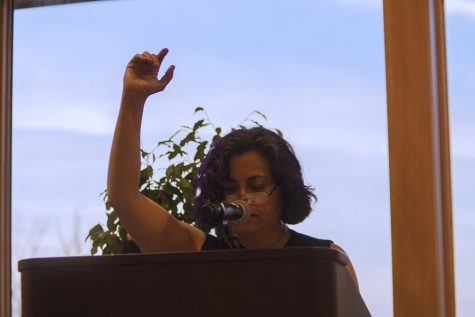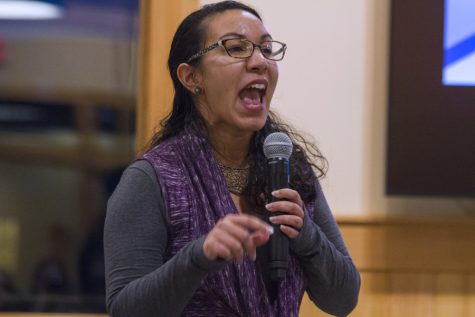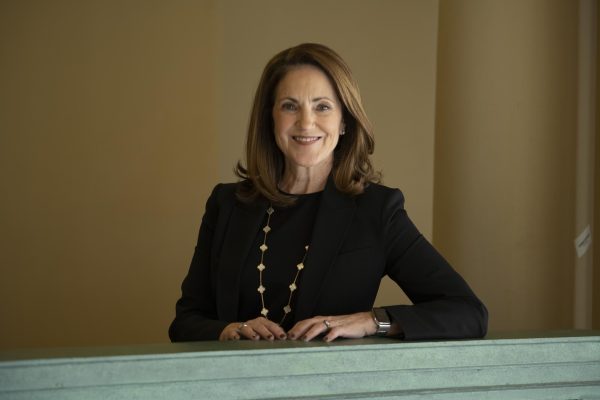Female leaders facilitate empowerment


 The UVM Alumni house was filled with around 80 people of different genders, ages and races for the third annual Women in Leadership Summit.
The UVM Alumni house was filled with around 80 people of different genders, ages and races for the third annual Women in Leadership Summit.
Tables were scattered with forgotten, half-eaten plates of food. Attendees instead chose to focus on the speakers in front of them and fellow attendees April 24.
“The first woman president will walk on water, and they will say she cannot swim,” Rep. Kesha Ram of the Vermont House of Representatives said.
Sen. Sage Ryan, chair of SGA’s Committee on Diversity, Inclusion and Equity, and Sen. Margaux Miller, who serves on the same committee, hosted the event. Speakers included Ram, senior Alicia Gusan and Tina Escaja, a Spanish professor and the interim director of the gender, sexuality and women’s studies program.
The summit is an annual event that invites people of all gender identities to discuss and celebrate the experience of women in leadership roles through three prominent speakers.
Gusan, Escaja and Ram — all local women in leadership roles — spoke of their personal tribulations as women in positions of power. They also spoke of the social and cultural stigmas that surround women in positions of power.
“If women dare to be leaders, they will likely be represented as bad mothers, bitches and putas,” Escaja said.
The speakers discussed how gender influenced their leadership and the way they got their start.
“There were three boys running for student council president in fifth grade, and I was like ‘no, that’s a travesty,’” Ram said about how she got her start in politics.
Gusan discussed the impact that her battle with mental health had on her role as a female leader.
“I was convinced my presence was a burden to those around me,” Gusan said. “The nagging voice, the ‘you’re not good enough voice,’ seeps back in and during those times I felt I was really difficult to work with as a leader, but then I wondered if a man would feel that way.”
Organizers encouraged attendees to talk between speakers, prompting the audience with discussion questions about the material.
“At the end of the day, change stems from discussion and connection with other people,” sophomore Megan Fariel said. “I think this event is a nice way to reflect, share ideas, and inspire each other.”









